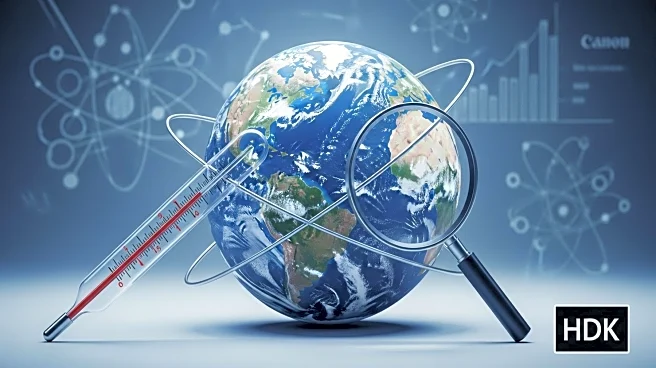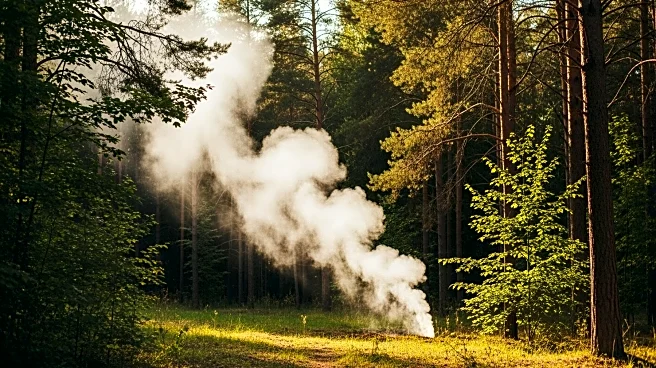What's Happening?
The Trump administration's efforts to revoke a key climate finding have been met with criticism from scientists. Two reports from the Environmental Protection Agency (EPA) and the Department of Energy (DOE) aimed at challenging the 2009 endangerment finding, which states that climate change poses a threat to public health, have been criticized for containing errors and biased interpretations. The reports have been accused of using incorrect data, such as Antarctic sea ice figures to discuss Arctic conditions, and misrepresenting scientific studies. The administration's proposal to overturn the endangerment finding could lead to the rollback of regulations limiting pollution from various sources.
Why It's Important?
The potential revocation of the endangerment finding could have significant implications for U.S. environmental policy. If successful, it may lead to the weakening of regulations that control emissions from power plants, vehicles, and other sources, potentially increasing pollution levels. This move could also undermine efforts to combat climate change, affecting public health and the environment. The criticism from scientists highlights concerns about the integrity of the administration's approach to climate science, which could influence public perception and policy decisions.
What's Next?
The public has been given until September 2 to comment on the DOE report and until September 22 for the EPA's proposal. The Trump administration will need to consider this feedback before making a final decision. Environmental groups are already challenging the reports in court, which could lead to legal battles over the proposed changes. The National Academy of Sciences is preparing a report on the latest evidence regarding greenhouse gas emissions and their impact on public health, which may influence future policy discussions.
Beyond the Headlines
The controversy surrounding these reports raises questions about the ethical responsibilities of government agencies in presenting scientific data. The alleged cherry-picking and misrepresentation of information could erode trust in public institutions and scientific research. This situation also highlights the broader cultural and political debates over climate change and environmental regulation, which continue to be contentious issues in U.S. society.








